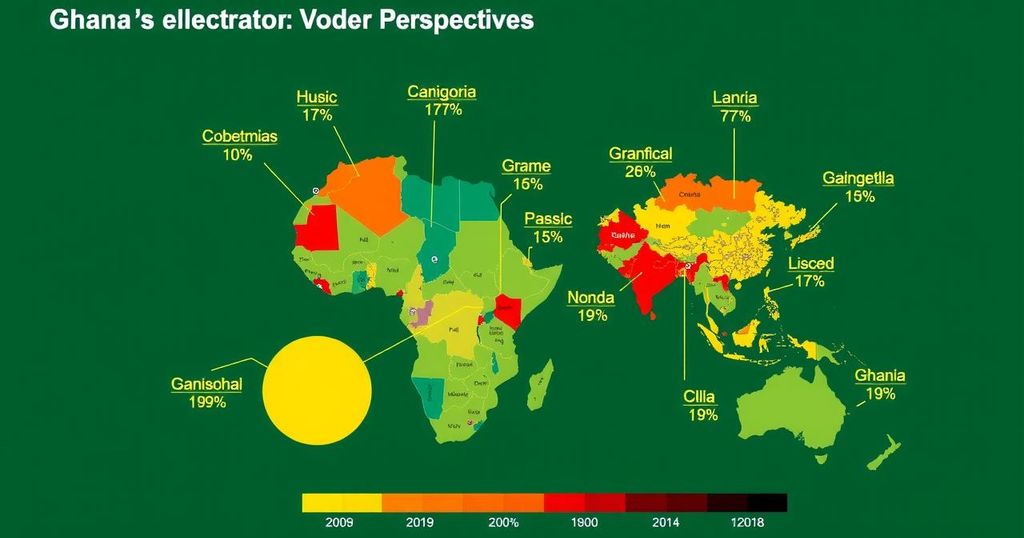Ghana’s Upcoming Election: Key Issues Facing Voters in 2024

Ghana is set to undertake its ninth general election amidst economic challenges, including soaring inflation, rising unemployment, and escalating national debt. The ruling NPP seeks a third term as citizens express concerns over deteriorating living standards and government management. Youth voters are especially influential, and the upcoming election, slated for December 7, reflects broader issues impacting the nation’s future.
As Ghana approaches its ninth general election since adopting multiparty politics in 1992, the nation grapples with crucial issues impacting voters. The ruling New Patriotic Party (NPP) aims to secure an unprecedented third consecutive term amid a backdrop of economic challenges, including an inflation rate that peaked at 54.1% in December 2022. This inflation has severely affected the cost of essential goods, pushing many into poverty and exacerbating living standards. Meanwhile, high unemployment rates, particularly among youth, and rising national debt have prompted voters to scrutinize both government performance and future policies.
In recent years, Ghana has faced significant economic hardships, including a debt default and ongoing negotiations with international lenders for restructuring. A significant portion of national income goes to servicing this debt, leaving little room for public investment. President Nana Akufo-Addo acknowledged the economic crisis but attributed it to external factors, while critics point out that government mismanagement has played a role.
Additionally, Ghana’s resource-rich economy—including gold, cocoa, and oil—presents both opportunities and challenges. While the country benefits from being a leading global producer of gold, illicit mining activities raise environmental concerns that have become prominent electoral discussion points. The economic landscape has improved over decades, with a reduction in extreme poverty, yet many citizens remain discontented due to stagnant income levels post-2017.
Ghana’s democratic landscape has successfully navigated peaceful transitions of power, often reflecting the electorate’s short-term perspectives rather than long-term socio-economic progress. With a significant portion of voters aged under 35, their sentiments may significantly influence this election, scheduled for December 7, as candidates strive to address the pressing issues faced by the populace. The forecasted results are expected within three days post-election, marking another significant moment in Ghana’s democratic journey.
Ghana has been a beacon of democracy in West Africa since the revival of multiparty politics in 1992. Over the years, it has experienced three peaceful transfers of power between its two major political parties, the National Democratic Congress (NDC) and the New Patriotic Party (NPP). However, the lead-up to the 2024 elections presents Ghanaian voters with a complex array of challenges, particularly economic issues such as inflation, rising unemployment, and escalating debt, which have significantly impacted living standards and public perception of government performance.
In conclusion, Ghana’s upcoming elections serve as a vital reflection of the electorate’s concerns stemming from economic adversity and social challenges. With high inflation, increased unemployment, especially among the youth, and the burden of national debt, Ghanaians are poised to make critical decisions about their leaders and the direction of the country. The dynamics created by the youth vote and ongoing economic negotiations will undoubtedly shape the electoral outcomes and future governance in Ghana.
Original Source: www.bbc.com







